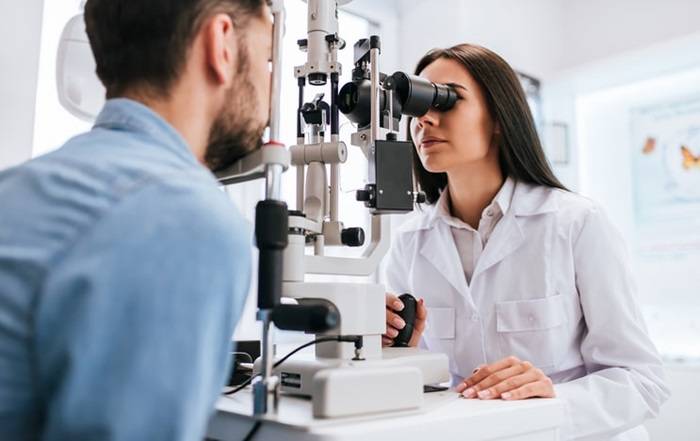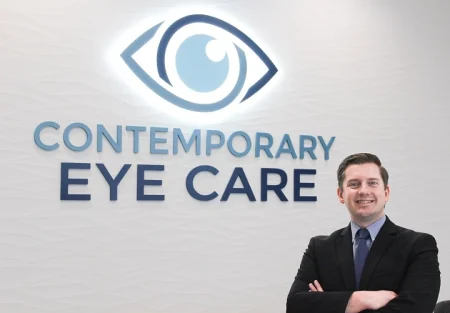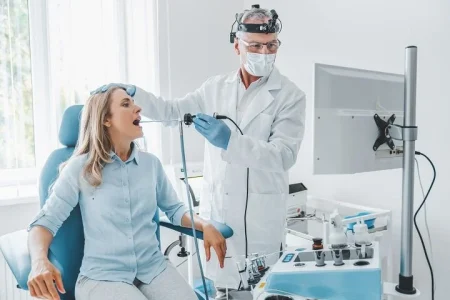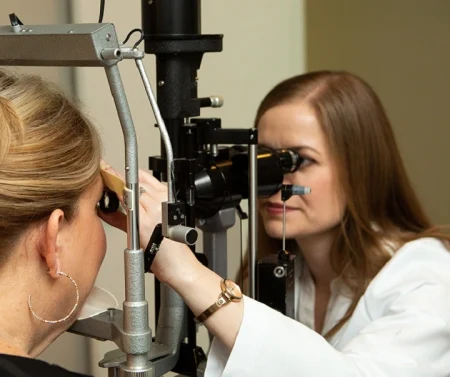When it comes to your vision, finding the right eye doctor is crucial. Whether you need a routine eye exam, treatment for an eye condition, or assistance with corrective lenses, a qualified eye care professional can make all the difference. But with so many options available, how do you choose the best eye doctor near you? In this comprehensive guide, we’ll explore everything you need to know to make an informed decision about your vision care.
Understanding Different Types of Eye Doctors:

Before diving into your search for the perfect eye doctor, it’s essential to understand the various types of eye care professionals and their specialties:
- Optometrists:
- Optometrists are primary eye care providers who specialize in comprehensive eye exams, prescribing corrective lenses, and detecting common eye conditions such as nearsightedness, farsightedness, and astigmatism.
- They may also provide pre- and post-operative care for patients undergoing vision correction surgeries like LASIK.
- Ophthalmologists:
- Ophthalmologists are medical doctors (MDs) or doctors of osteopathic medicine (DOs) who specialize in the diagnosis, treatment, and management of eye diseases and disorders.
- They can perform eye surgeries, including cataract surgery, corneal transplants, and retinal procedures.
- Some ophthalmologists may also sub-specialize in areas such as pediatric ophthalmology, glaucoma, or retina diseases.
- Optician:
- Opticians are trained professionals who specialize in fitting and dispensing eyeglasses and contact lenses based on prescriptions provided by optometrists or ophthalmologists.
- While they don’t diagnose or treat eye conditions, opticians play a crucial role in helping patients find the right eyewear for their needs.
Factors to Consider When Choosing an Eye Doctor:
Now that you understand the different types of eye care professionals, let’s explore the key factors to consider when selecting the best eye doctor near you:
- Qualifications and Credentials:
- Verify that the eye doctor you’re considering is properly licensed and board-certified in their respective field (optometry or ophthalmology).
- Look for additional certifications or memberships in professional organizations, which indicate a commitment to ongoing education and excellence in the field.
- Experience and Expertise:
- Consider the doctor’s experience in diagnosing and treating conditions similar to yours.
- If you have a specific eye condition or require specialized care, seek out an eye doctor with expertise in that area.
- Reputation and Reviews:
- Research online reviews and testimonials from patients to gauge the doctor’s reputation and quality of care.
- Pay attention to feedback regarding communication skills, bedside manner, and overall patient satisfaction.
- Services Offered:
- Determine whether the eye doctor offers the services you need, such as routine eye exams, contact lens fittings, or treatment for eye diseases.
- If you have specific requirements, such as pediatric eye care or low vision services, ensure that the doctor has experience in those areas.
- Technology and Facilities:
- Evaluate the technology and equipment available at the eye doctor’s practice.
- Advanced diagnostic tools and treatment options can enhance the accuracy of diagnoses and the effectiveness of treatments.
- Insurance Coverage and Payment Options:
- Confirm that the eye doctor accepts your insurance plan or offers alternative payment arrangements.
- Inquire about the cost of services, including co-pays, deductibles, and out-of-pocket expenses, to avoid unexpected bills.
How to Find Eye Doctors Near You:
Now that you know what to look for in an eye doctor, let’s explore the various methods for finding qualified eye care professionals in your area:
- Ask for Recommendations:
- Seek recommendations from family, friends, or colleagues who have had positive experiences with eye doctors.
- Personal referrals can provide valuable insights into the quality of care and the doctor’s bedside manner.
- Consult Your Primary Care Physician:
- Your primary care physician may be able to recommend reputable eye doctors in your area.
- They can also coordinate referrals for specialized eye care if needed.
- Use Online Directories:
- Explore online directories and search engines to find eye doctors near you.
- Many directories allow you to filter results based on location, specialties, and patient reviews.
- Check with Insurance Providers:
- Contact your health insurance provider to obtain a list of in-network eye doctors.
- Choosing an in-network provider can help minimize out-of-pocket expenses.
- Visit Professional Organizations’ Websites:
- Professional organizations such as the American Optometric Association (AOA) and the American Academy of Ophthalmology (AAO) often have directories of their members.
- These directories may include information about each doctor’s credentials, specialties, and practice locations.
Questions to Ask During Your Consultation: Once you’ve narrowed down your list of potential eye doctors, schedule consultations to meet with each one and ask pertinent questions:
- What are your qualifications and areas of expertise?
- Can you provide references or patient testimonials?
- What services do you offer, and do you have experience treating my condition?
- What diagnostic tests or procedures do you recommend?
- What treatment options are available, and what are the associated risks and benefits?
- How do you handle emergencies or after-hours care?
- What is your approach to patient education and involvement in treatment decisions?
- What are the costs associated with my care, and do you accept my insurance plan?
Choosing the right eye doctor is essential for maintaining optimal eye health and vision. By considering factors such as qualifications, experience, reputation, and services offered, you can find a trusted eye care professional near you. Remember to schedule regular eye exams and seek prompt treatment for any changes in your vision or eye health. With the guidance of a skilled eye doctor, you can enjoy clear vision and a lifetime of healthy eyesight.








